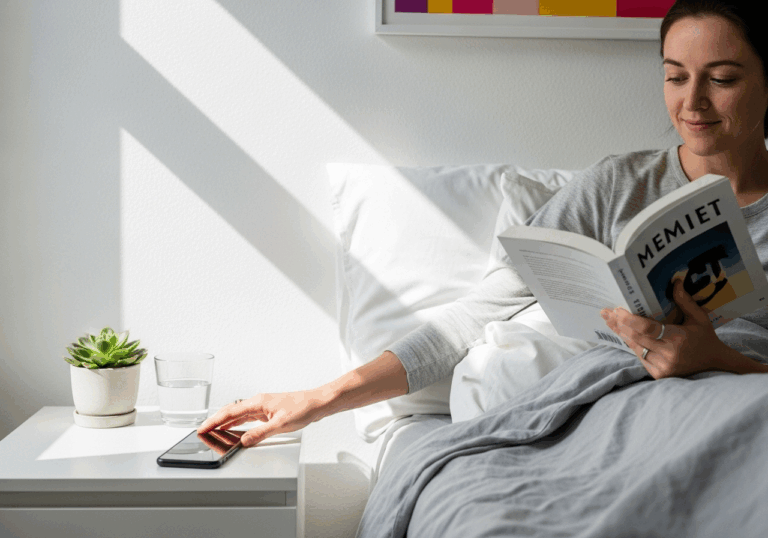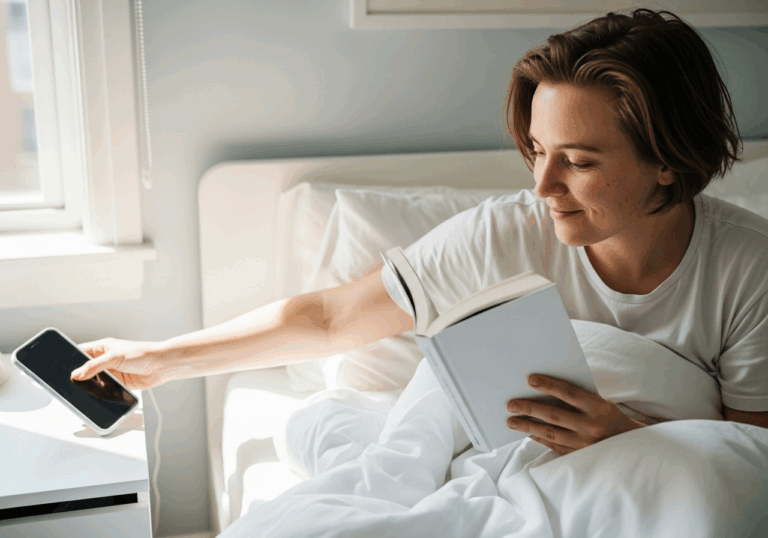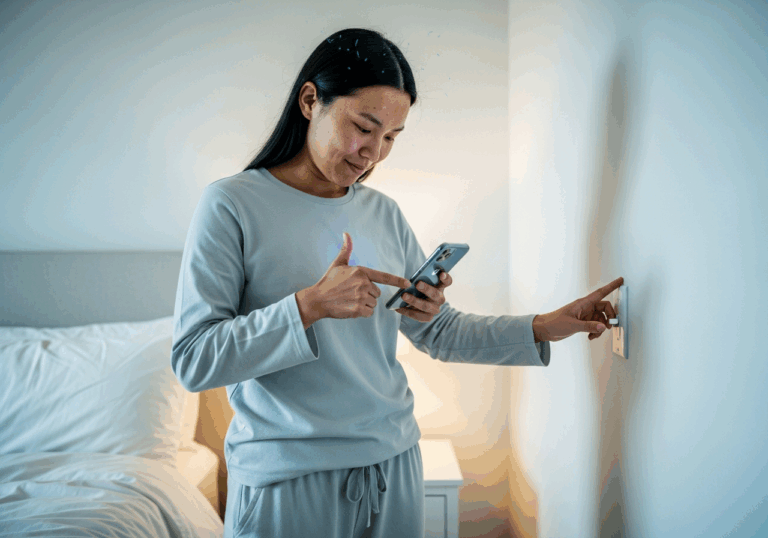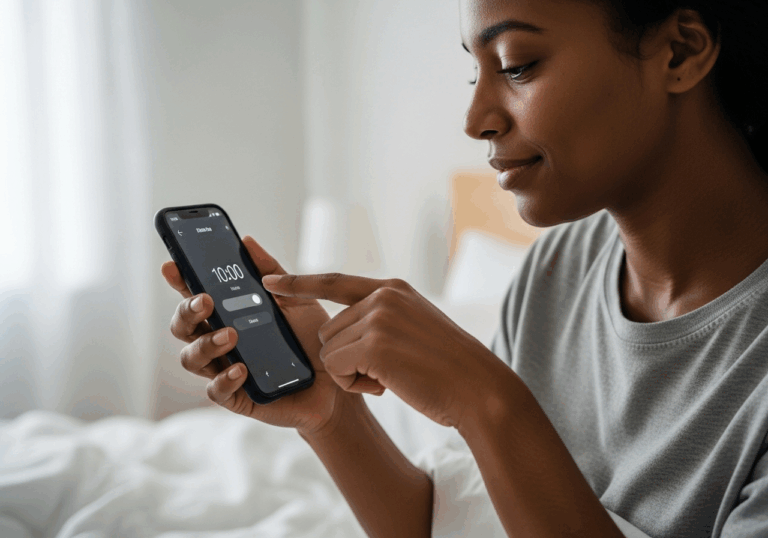Science-Backed Tips
Unlock Better Sleep with Full Darkness
Achieve 12% faster sleep onset and 8% improved efficiency.
📊 Did you know?
💡 Why It Matters
1️⃣
Improving sleep onset and efficiency can enhance overall mood and cognitive function.
2️⃣
Better sleep quality is linked to a 30% reduction in daytime sleepiness.
3️⃣
Enhanced sleep conditions can lead to improved mental health outcomes.
✅ Try These Micro-Tips
🎯
Ensure your bedroom is completely dark (less than 5 lux) before sleep.
🎯
Use blackout curtains or sleep masks to block out light.
🎯
Limit screen time at least 1 hour before bedtime to reduce light exposure.
🎯
Consider using a sleep tracker to monitor your sleep efficiency.
📚 The study
These findings highlight the importance of creating an optimal sleep environment, as environmental cues play a crucial role in supporting our physiological sleep and mood.
Better sleep quality not only helps us feel more rested but is also linked to a remarkable 30% reduction in daytime sleepiness, which can enhance our cognitive function and overall mood.
By prioritizing sleep conditions that promote darkness, we can pave the way for improved mental health outcomes and a more refreshed start to our day.
So, if you’re struggling with sleep issues, consider adjusting your bedroom environment to embrace full darkness and reap the benefits of a good night’s sleep.
❓ Frequently Asked Questions ❓
Learn more
How does darkness affect sleep onset latency?
Ensuring full darkness in the bedroom can reduce sleep onset latency by approximately 12%. This means you will fall asleep faster in a dark environment compared to a well-lit one.
What is sleep efficiency and how is it impacted by darkness?
Sleep efficiency refers to the ratio of time spent asleep to the total time spent in bed. Full darkness conditions can improve sleep efficiency by about 8%, allowing for more restorative sleep.
How does melatonin relate to sleep quality?
Melatonin is a hormone that regulates sleep-wake cycles and is promoted by darkness. Increased melatonin levels can lead to better sleep quality and overall mood enhancement.
What are some practical ways to achieve full darkness in the bedroom?
Using blackout curtains or sleep masks can effectively block out light. Additionally, ensuring that electronic devices are turned off or covered can help maintain a dark environment.
How does sleep quality affect daytime alertness?
Improved sleep quality is linked to a significant reduction in daytime sleepiness, estimated at around 30%. Better sleep allows for enhanced cognitive function and overall alertness during the day.
What role does the bedroom environment play in sleep and mood?
The bedroom environment, including light and noise levels, significantly influences physiological sleep and mood. A conducive environment can lead to improved mental health outcomes.
Why is it recommended to limit screen time before bed?
Limiting screen time at least one hour before bedtime reduces light exposure, which can interfere with melatonin production. This practice helps prepare the body for sleep and improves overall sleep quality.
Can sleep trackers help improve sleep efficiency?
Yes, using a sleep tracker can provide insights into your sleep patterns and efficiency. This information can help you make adjustments to enhance your sleep quality.
What is the significance of achieving less than 5 lux in the bedroom?
Achieving less than 5 lux in the bedroom is crucial for promoting optimal sleep conditions. This level of darkness supports the body’s natural sleep processes and enhances overall restfulness.
How can improved sleep conditions impact mental health?
Enhanced sleep conditions can lead to better mental health outcomes by reducing stress and improving mood. Quality sleep is essential for emotional regulation and cognitive function.





